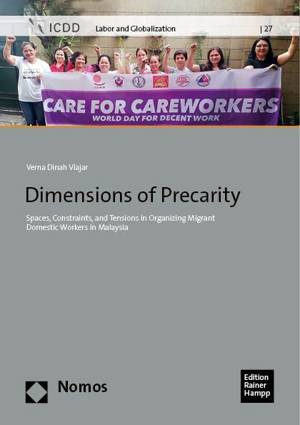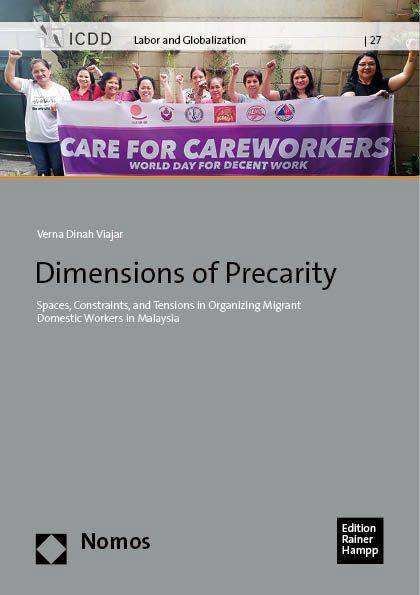
- Afhalen na 1 uur in een winkel met voorraad
- Gratis thuislevering in België vanaf € 30
- Ruim aanbod met 7 miljoen producten
- Afhalen na 1 uur in een winkel met voorraad
- Gratis thuislevering in België vanaf € 30
- Ruim aanbod met 7 miljoen producten
Zoeken
Dimensions of Precarity
Spaces, Constraints, and Tensions in Organizing Migrant Domestic Workers in Malaysia
Verna Dinah Viajar
€ 44,95
+ 89 punten
Omschrijving
This study argues that the spaces, limits and strategies in organising domestic workers are informed and shaped by a country's political economy and labour regime. It is guided by the theoretical frameworks of Robert Cox's Neo-Gramscian action framework and Social Reproduction Theory in its analysis. These frameworks of analysis illuminate the relations of social forces engendered through the particular relations of production and reproduction, and they provide the conceptual tools with which to explain the dimensions of precarity and organising strategies that shape and constrain the spaces involved in organising migrant domestic workers. This study proposes that the interlocking dimensions of precarity perpetuate and result in the cycle of disempowerment, disposability and exclusion of migrant domestic workers in Malaysia.
Specificaties
Betrokkenen
- Auteur(s):
- Uitgeverij:
Inhoud
- Aantal bladzijden:
- 273
- Taal:
- Engels
- Reeks:
- Reeksnummer:
- nr. 27
Eigenschappen
- Productcode (EAN):
- 9783985420490
- Verschijningsdatum:
- 13/09/2023
- Uitvoering:
- Paperback
- Afmetingen:
- 149 mm x 15 mm
- Gewicht:
- 360 g

Alleen bij Standaard Boekhandel
+ 89 punten op je klantenkaart van Standaard Boekhandel
Beoordelingen
We publiceren alleen reviews die voldoen aan de voorwaarden voor reviews. Bekijk onze voorwaarden voor reviews.








